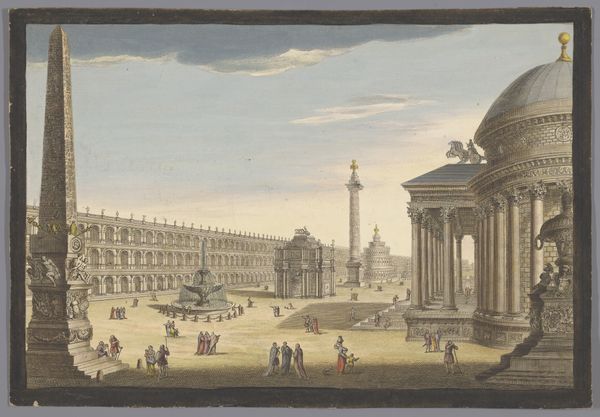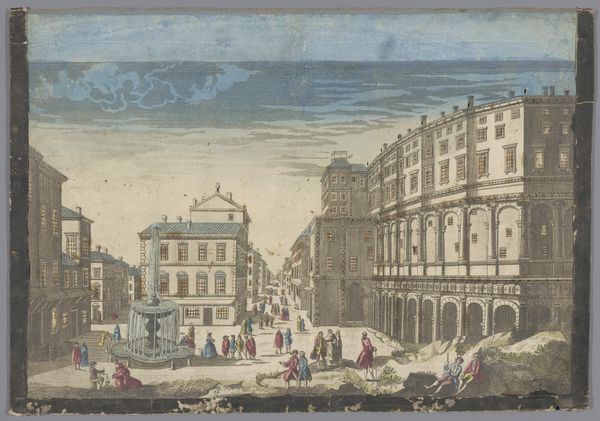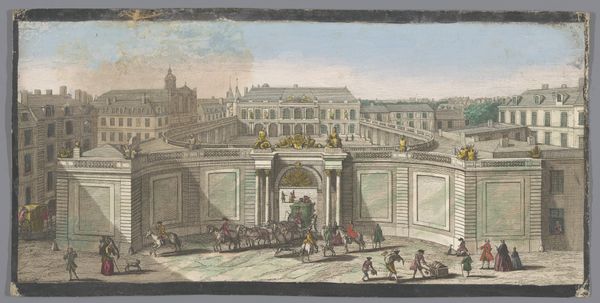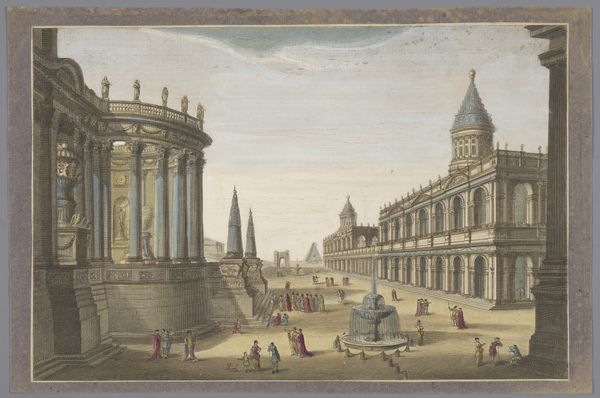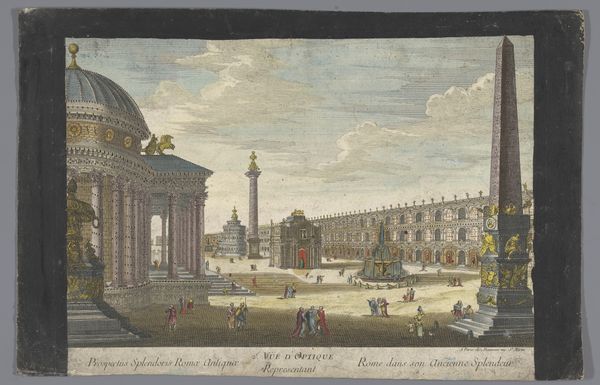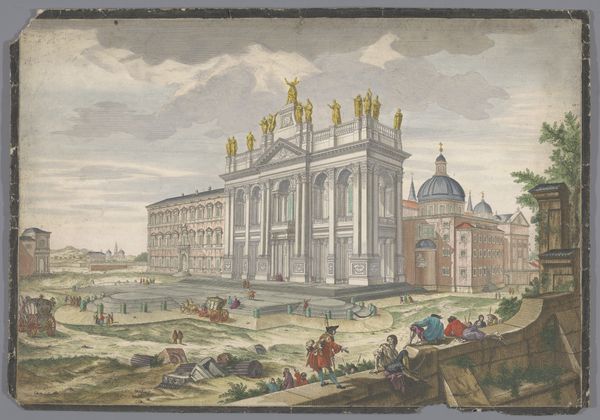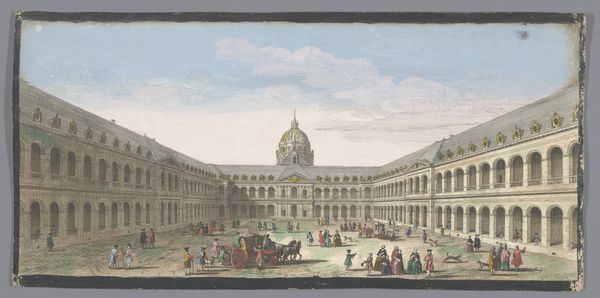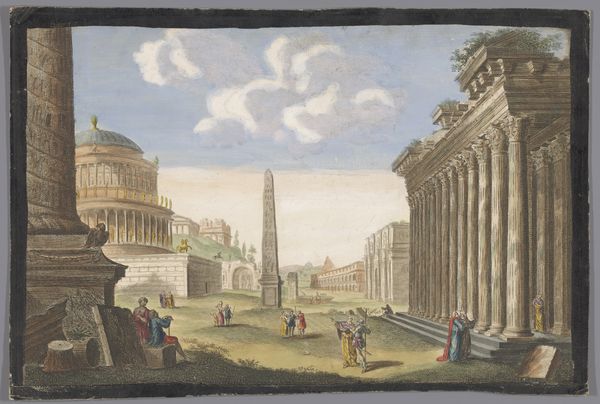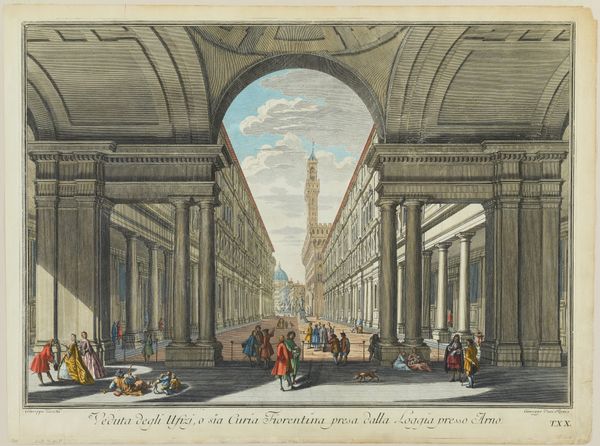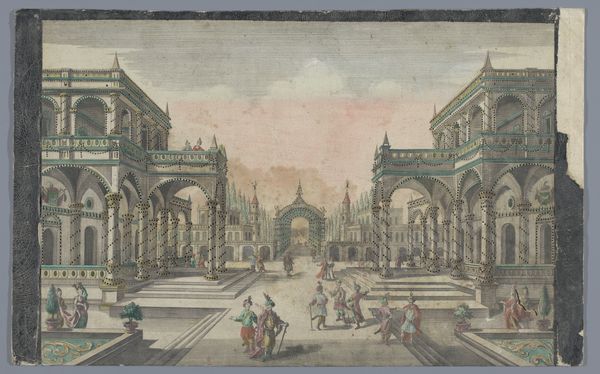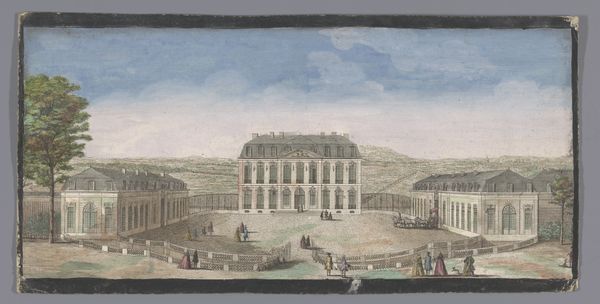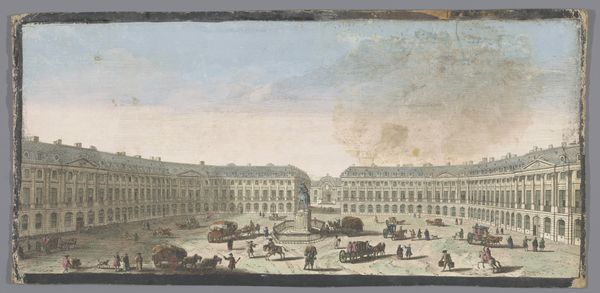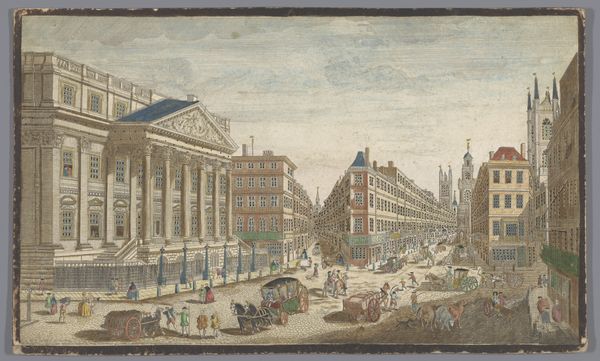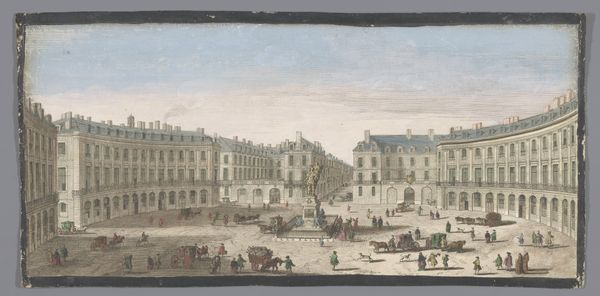
Gezicht op een obelisk, een triomfboog, een zuil en andere bouwwerken te Rome 1756
0:00
0:00
robertsayer
Rijksmuseum
drawing, watercolor
#
drawing
#
neoclacissism
#
water colours
#
landscape
#
watercolor
#
coloured pencil
#
cityscape
#
academic-art
Dimensions: height 277 mm, width 422 mm
Copyright: Rijks Museum: Open Domain
Editor: This is "View of an Obelisk, a Triumphal Arch, a Column, and Other Buildings in Rome," a watercolor and colored pencil drawing made around 1756 by Robert Sayer. There's something both grand and empty about this scene. The architecture is impressive, but the light palette and almost miniature figures give it an air of detachment. What strikes you most about the visual arrangement? Curator: The composition reveals a keen interest in perspective and the interplay of geometric forms. Note the artist's strategic placement of architectural elements – the obelisk, the triumphal arch, the column – each acting as a vertical accent within the horizontal expanse of the cityscape. The symmetry and repetition are deliberate, creating a sense of order and, dare I say, idealized space. Do you observe the texture rendered with watercolour? Editor: I do. There’s a smooth consistency in the application. I agree the formal elements create a structured, harmonious, if slightly clinical, viewing experience. Is it missing some of the roughness and authenticity found in earlier landscape paintings? Curator: Precisely! There's an undeniable emphasis on clarity and precision. Observe the careful delineation of each architectural detail and the overall absence of atmospheric effects that might obscure the clean lines. In rendering of form, one recognizes an elevation to something idealized – we are faced with an idea of Rome, not Rome itself. Editor: So, by analyzing its form – its lines, perspective, and colour – we're able to infer not only the artist's intentions, but also something about the values of the time? I'm beginning to understand more about what I look at when I’m standing in front of a piece of art. Curator: Exactly. One is now prepared to assess the philosophical dimensions in play.
Comments
No comments
Be the first to comment and join the conversation on the ultimate creative platform.
